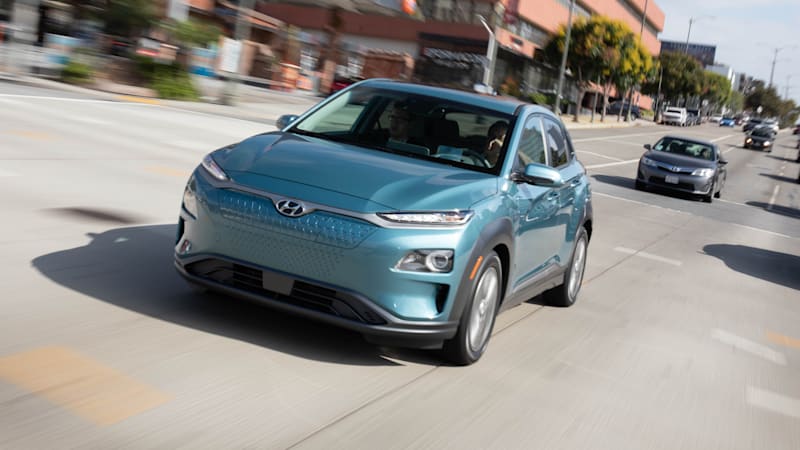Hyundai has announced it will replace the batteries in around 82,000 BEVs due to fire risks, in what is being called the largest all-electric vehicle battery recall ever.
After recalling nearly 77,000 Hyundai Kona Electric, Hyundai has found that the software update to the Battery Management System (BMS) does not solve the fire risk 100% as additionally units were reported catching fire after being updated causing a deeper investigation to ensue. Now, the automaker is being forced to replace the batteries entirely.
According to the latest media reports, the South Korean Ministry of Land, Infrastructure and Transport has said the new recall will include three BEVs: 75,680 Hyundai Kona Electric (25,083 in South Korea and 50,597 abroad), 5,716 Hyundai IONIQ Electric (1,314 in South Korea and 4,402 abroad), and 305 Hyundai Elec City electric buses (302 in South Korea and 3 abroad).
Hyundai will begin replacing battery packs starting on March 29, 2021. In the meantime, owners of the affected units have been advised not to charge their vehicles more than 90% battery capacity which ultimately results in less range.
Both the previous BMS recall as well as the newly announced recalled is costing the automaker an estimated 1 trillion won ($900 million).
All affected vehicles are equipped with lithium-ion cells supplied by LG Chem’s LG Energy Solution which Hyundai initially held responsible for the issue. Despite the car manufacturer’s assertion, the battery manufacturer refuted the report which they describe as “far from the truth”, as they “can not confirm the discovery reported by the institute of the defects in the battery.” The company pointed then out on the errors in the BMS designed by Hyundai Kefico:
“It [LG] said in a statement that Hyundai misapplied LG’s suggestions for fast-charging logic in the battery management system, adding the battery cell should not be seen as the direct cause of the fire risks.”
”The ministry also said it confirmed errors in BMS software, which was programmed by Hyundai Motor Group units, but needed further investigation to understand their relation with the fires.”
In addition to errors in BMS software, some cell defects were discovered as well. However, the investigation isn’t over:
“South Korea’s transport ministry said in a statement that some defects had been found in some battery cells produced at LG Energy’s [Nanjing] China factory.”
“The ministry said it has confirmed the risks of fire due to folding in an anode tap in battery cells, which appeared to have extracted lithium residue from the cell. The ministry added, however, it is yet to experience any fires in replication tests.”
A decision on how to proceed and details regarding how the two sides will share the costs are expected in the following week.
Senior researcher at the Korea Institute for Industrial Economics & Trade, Lee Hang-koo commented on the situation: “It’s very significant for both Hyundai and LG as we are in the early stages of the electric vehicle era. How Hyundai handles this will set a precedent not just in South Korea but also for other countries,”.
With the high demand of batteries throughout the EV industry, producing an additional 82,000+ is a huge setback for the automaker. Hopefully no battery problems will present in the new, currently produced and sold Hyundai electric cars, or the Hyundai Kona Electric for the European market who’s batteries are supplied from another plant.

